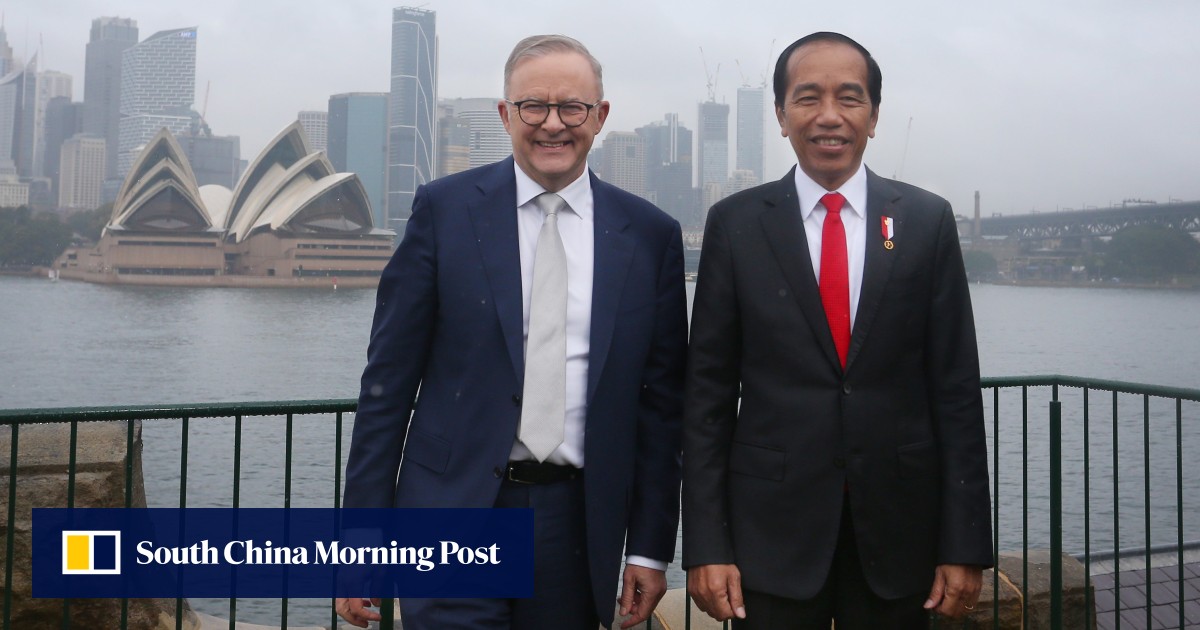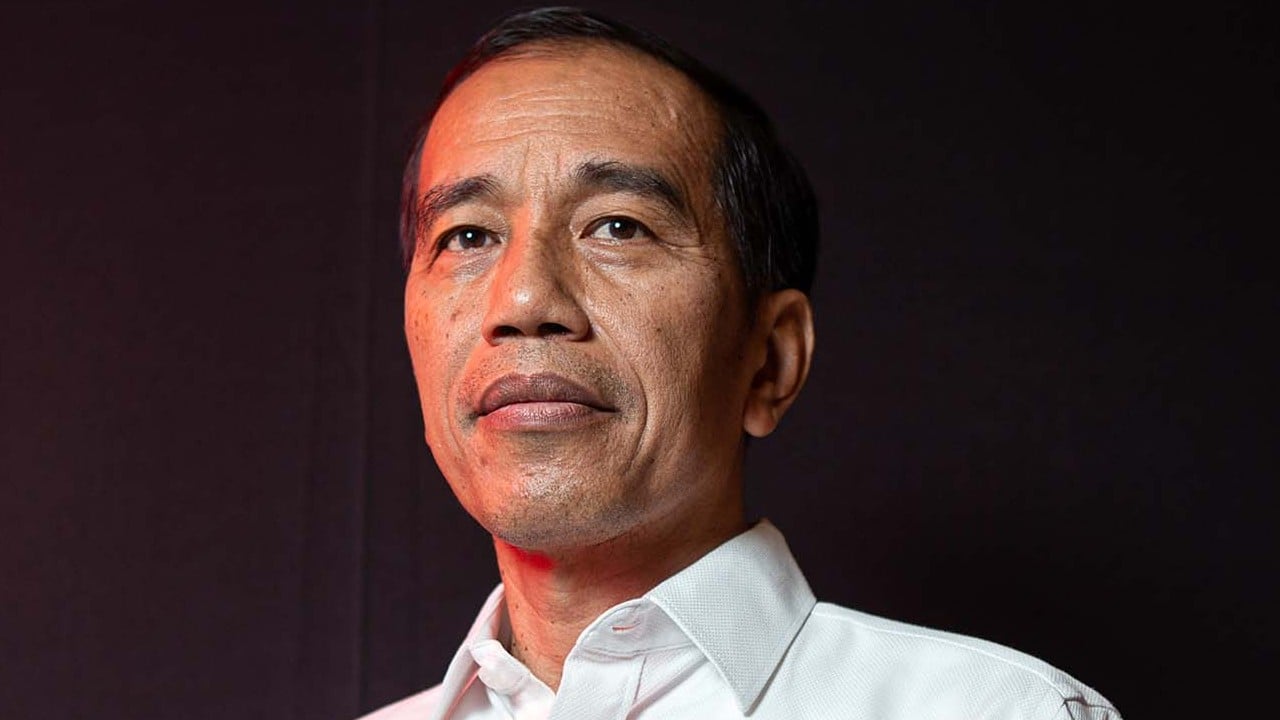Widodo has previously targeted increasing imports of lithium, a key component in EV battery production, from Australia. The state of Western Australia accounts for half of the world’s lithium production, while Indonesia has the world’s largest nickel reserves, another key element in EV batteries, at 21 million metric tons, according to the US Geological Survey.
The president viewed the move as one of the “many positive developments” in the bilateral relationship. “Indonesia and Australia must build a more substantive and strategic economic cooperation through the joint production of EV batteries,” Widodo said.
Australian Prime Minister Anthony Albanese (L) and Indonesian President Joko Widodo at Admiralty House in Sydney. Photo: Pool/dpa
Aside from increasing collaboration on nickel and lithium mining, the two leaders also sought to boost cooperation in climate and infrastructure, with Albanese announcing a A$50 million (US$33.4 million) fund to unlock investments into Indonesian small and medium-sized enterprises that were focused on climate and clean energy.
In 2020, Australia and Indonesia signed the Indonesia-Australia Comprehensive Economic Partnership Agreement to enhance trade and investment ties.
According to Australia’s Bureau of Statistics, Australian investment in Indonesia was US$524.4 million last year, up from US$195.2 million in 2021.
Meanwhile, Indonesians looking to travel to Australia are set to face relaxed visa rules, as Albanese on Tuesday extended the duration of business visas for Indonesians from three years to five. He added that Canberra would move to make Indonesians eligible for the frequent travellers’ visa.
“This offers a 10-year visa validity, making an enormous difference in removing bureaucratic impediments to have a closer relationship,” Albanese said.
Australians arriving in Indonesia can get a visa on arrival allowing them a 30-day stay for US$50 at any port of entry, while Indonesians still need to present a range of documents, including bank statements and a police record, to gain a short-term visitor visa for Australia.
Widodo and Albanese also discussed regional security, including stability in the Indo-Pacific region, the worsening crisis in Myanmar, as well as the war in Ukraine, of which “they strongly deplored the aggression by the Russian Federation against Ukraine and reiterated their call for compliance with the United Nations’ Charter and international law”, according to a joint statement.
The leaders also talked about Indonesia’s concern on nuclear proliferation in the region and reaffirmed their commitment to strengthening the global nuclear non-proliferation and disarmament regime.
But Jakarta’s view on the deal has shifted in recent months, with Widodo saying in May that he urged Southeast Asian countries to view Aukus and the Quad – a strategic security dialogue between Australia, India, Japan and the US – as partners instead of competitors.
“I conveyed [to Albanese that] Indonesia’s position and Asean is clear. We want the Indo-Pacific to become a stable and peaceful region that focuses on collaboration and concrete cooperation,” Widodo said.


